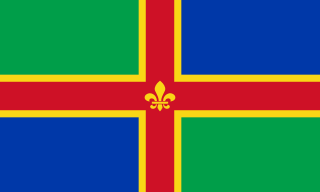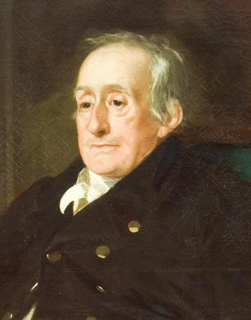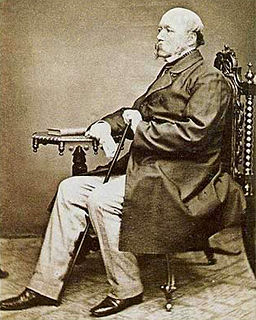Thomas Stanhope Badcock (1749–1821) was High Sheriff of Buckinghamshire in the year 1809 and was a descendant of Sir Salathiel Lovell.
The High Sheriff of Buckinghamshire, in common with other counties, was originally the King's representative on taxation upholding the law in Saxon times. The word Sheriff evolved from 'shire-reeve'.
Sir Salathiel Lovell (1631/2–1713) was an English judge, Recorder of London, an ancient and bencher of Gray's Inn, and a Baron of the Exchequer.
In 1797, he inherited the estates of Little Missenden Abbey in Buckinghamshire and Maplethorpe Hall in Lincolnshire following the premature death of his brother, Lovell Badcock, who died unmarried.

Little Missenden is a village and civil parish on the River Misbourne in Buckinghamshire, England. It is in the Chiltern Hills, about 3 miles (5 km) southeast of Great Missenden and 3 miles (5 km) west of Amersham.

Buckinghamshire, abbreviated Bucks, is a county in South East England which borders Greater London to the south east, Berkshire to the south, Oxfordshire to the west, Northamptonshire to the north, Bedfordshire to the north east and Hertfordshire to the east.

Lincolnshire is a county in eastern England, with a long coastline on the North Sea to the east. It borders Norfolk to the south east, Cambridgeshire to the south, Rutland to the south west, Leicestershire and Nottinghamshire to the west, South Yorkshire to the north west, and the East Riding of Yorkshire to the north. It also borders Northamptonshire in the south for just 20 yards (18 m), England's shortest county boundary. The county town is the city of Lincoln, where the county council has its headquarters.
He married Anne, daughter of William Buckle, of the Mythe House Tawkesbury, on 17 February 1780 and by this union had two sons and two daughters. His sons, Lovell Benjamin Badcock and William Stanhope Badcock went on to have distinguished military and naval careers, becoming a lieutenant-general and vice-admiral respectively, whilst his eldest daughter, Anne Badcock was married in 1809 to Major-General Sir Jasper Nicolls KCB. His youngest daughter, Sophia Badcock, was married in 1814 to the Reverend James Duke Coleridge, a nephew of the poet, Samuel Taylor Coleridge.
General Sir Lovell Benjamin Lovell, KCB, KH was a lieutenant-general in the British Army. He was a descendant of Sir Salathiel Lovell, through the marriage of Lovell's daughter, Jane Lovell, to Richard Badcock, the eldest son of William Badcock, a London goldsmith.
Vice Admiral William Stanhope Lovell, KH (1788–1859) was a vice-admiral in the British Royal Navy and a descendant of Sir Salathiel Lovell.

Lieutenant General Sir Jasper Nicolls KCB was Commander-in-Chief, India.
Badcock died on 13 April 1821 and is buried in the Abbey Church at Bath. [1]

Bath is the largest city in the ceremonial county of Somerset, England, known for its Roman-built baths. In 2011, the population was 88,859. Bath is in the valley of the River Avon, 97 miles (156 km) west of London and 11 miles (18 km) south-east of Bristol. The city became a World Heritage site in 1987.







